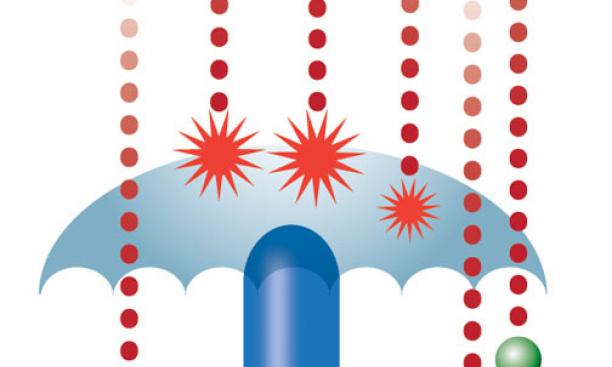

A synthetic enzyme created by Princeton researchers could result in more effective drugs with fewer side effects. CHEMISTRY graduate students Wei Liu and Xiongyi Huang conducted the research with chemistry professor John Groves and researchers at the California Institute of Technology. They discovered a way to make a drug molecule resistant to enzymes that can deactivate a drug or create toxic byproducts, which may result in higher potency and lower toxicity. The synthetic enzyme could improve existing drugs such as steroids. The findings were reported in “Science” in September.
An architect since 1950 and dean emeritus of the School of Architecture, Robert Geddes summarizes his thinking on the BUILDING ARTS in a little book called “Fit: An Architect’s Manifesto” (Princeton University Press). Past architectural manifestos often have been simplistic, but Geddes calls for complexity: Buildings must seek to “fit” with changing societal needs.
RELIGION is merely obtuse irrationalism, a series of recent books have charged. But in “The God Problem: Expressing Faith and Being Reasonable” (University of California Press) — based on 200 interviews with highly educated, sophisticated Americans — sociology professor Robert Wuthnow shows that belief in God typically dovetails with rational thinking. Wuthnow says that the faithful often use language in prayer, or in talking about God or heaven, that avoids being over-precise and hence blatantly unreasonable — in part to avoid being perceived by peers as fanatical or bigoted.
